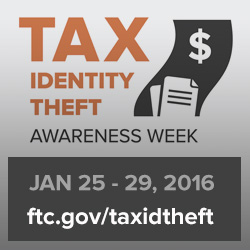Sheri spoke about the drafting and administration of Pet Trusts to the Silicon Valley Bar Association New Attorney Round Table.
of Pet Trusts to the Silicon Valley Bar Association New Attorney Round Table.
Author Archives: Sheri
Today is World Elder Abuse Awareness Day
I have had phone calls the past three mornings (including one at 5:00 a.m.) from a recorded caller claiming to be from the IRS and demanding that I call them back immediately or the IRS will file a lawsuit against me. I have not returned these calls, however there is a good chance that someone that I know or that you know may be frightened by a call such as this and will respond to the call. I am sure that the first thing that they will be asked for is their social security number and maybe even their bank account number to transfer funds to settle the lawsuit.
This is just one of the many scams that are taking place every day. The purpose of having a world elder abuse day is to educate older adults and those who care for them about the many types of financial elder abuse that are occurring and how to prevent them. While it is not always easy to identify financial elder abuse, you can watch for changes in the older person’s financial activities that may signal that there is an issue, such as:
• Unusual changes in wills or powers of attorney – Out of the blue, your grandfather wills all of his belongings to his new caregiver.
• Financial activity the person couldn’t have done herself – You discover repeated online credit card charges on your mom’s bill, who does not know how to use a computer.
• Bills not being paid – When visiting a neighbor, you see mail piling up on his desk or you stop seeing his lights on at night.
• Significant withdrawals or unusual purchases – You notice charges for luxury items on your thrifty aunt’s credit card bill.
The following are some additional online resources that I recommend:
The Federal Trade Commission (FTC) “Pass it On” campaign has a number of resources for the consumer to protect themselves and others from scams.
The Consumer Financial Protection Bureau (CFPB) has tools for caregivers that are trying to assist older persons with their finances. You can download their publication “Money Smart for Older Adults.”
* The information contained in this Blog is intended for general information and educational purposes only and does not constitute legal advice or an opinion of counsel.
Annual Special Needs Planning Meeting
Leslie and Sheri attended the 10th annual meeting of the Academy of Special Needs Planners, held in Tucson, Arizona, March 10-12. The
235-member Academy is the nation’s leading organization of special needs planning professionals. Members of the Academy devote a
significant part of their practices to working with individuals with special needs and their families to plan for the future and ensure that children with special needs receive ample financial protection.
The Academy’s annual meeting featured presentations by some of
the nation’s leading experts in special needs planning, who kept
attendees current on the latest regulatory changes and legal decisions
and shared strategies for better serving clients and their families in this fast-growing legal field.
Meeting sessions included “An Update on SSI Rules,” “Special Needs Trusts and Retirement Benefits,” “Recent Trends in Special Needs Planning,” “Identifying and Handling ‘Tricky Issues’ in SNT Administration,” as well as an “Ask the Experts” panel discussion.
Perhaps most importantly, the meeting afforded the chance for attendees to exchange planning ideas and strategies with fellow members working in special needs planning around the nation.
Estate Administration Video
Leslie Yarnes Sugai and Sheri Sudweeks were recently interviewed for a local real estate television program, Kapowich on Real Estate. In this episode, which is the second of a two part series, they discuss estate administration issues.
Topics covered include:
Discussion of what constitutes an estate administration, trust administration and probate. How long you should expect these processes to take and how they affect the sale of real estate.
The on-going administration of Special Needs trusts and how they are administered to bring additional benefits to persons with disabilities for their lifetimes. The ownership of real property by a special needs trust.
Discussion of Guardians of the person and estate of minor children and the limitations of the control of the assets when a trust is not utilized.
Understanding the term Private Professional Fiduciary and the role that they can play in the administration of an estate by court appointment in a contested matter or by the election of the person who creates the estate plan.
To view the program, click here.
* The information contained in this Blog is intended for general information and educational purposes only and does not constitute legal advice or an opinion of counsel.
Estate Planning Video
Leslie Yarnes Sugai and Sheri Sudweeks were recently interviewed for a local real estate television program, Kapowich on Real Estate. In this episode, which is the first of a two part series, they discuss estate and incapacity planning issues.
Topics covered include:
The documents that constitute an estate plan. Trusts, Wills, Advance Health Care Directives, and Powers of Attorneys. How estate planning affects the title to real estate.
Special Needs planning for persons with disabilities to enhance the lives and health of those who are dependent on public benefits.
The facts and myths behind Medi-Cal and Long Term Care Planning. Understanding what is meant by the home being an exempt asset, how the home is valued and recovery issues.
The difference between amending a trust and modifying a trust. In California the law allows for the modification of trusts by the Court, even those that are irrevocable under certain circumstances.
To view the program, click here.
* The information contained in this Blog is intended for general information and educational purposes only and does not constitute legal advice or an opinion of counsel.
Should It Stay or Should It Go
We get a lot of questions about how long and where clients should retain records. We recommend that clients keep their original trusts and wills in a safe deposit box for their lifetime. We recommend that they keep the originals of their Advance Health Care Directives and Powers of Attorney for Finances in a safe place, where it can be easily accessed when needed.
For Trustees of Special Needs Trusts, whose beneficiaries receive Supplemental Security Income (SSI), we recommend that all records, receipts and bank statements be retained indefinitely.
For more information on what you should retain and what you should shred, we recommend the Federal Trade Commission’s recently published article to serve as a guideline. For the full article go to, A Pack Rat’s Guide to Shredding.
* The information contained in this Blog is intended for general information and educational purposes only and does not constitute legal advice or an opinion of counsel.
Are You Ready?
The State of California has developed a non-profit website to help consumers navigate the overwhelming and costly issue of long-term care. They offer planning tools, brochures, calculations, and information on long term care insurance policies. As two out of three Californians are projected to need long-term care this information can help you make sure that you have prepared for the needs of yourself and your loved ones.
* The information contained in this Blog is intended for general information and educational purposes only and does not constitute legal advice or an opinion of counsel.
Tax Identity Awareness Week
 As Tax season approaches make sure that you do not fall victim to the fraud and scams that abound. Listed below are some of the events that are being hosted by the Federal Trade Commission and its partners on how to minimize your risk what to do if your identity is compromised.
As Tax season approaches make sure that you do not fall victim to the fraud and scams that abound. Listed below are some of the events that are being hosted by the Federal Trade Commission and its partners on how to minimize your risk what to do if your identity is compromised.
• January 26, 2 p.m. – an FTC webinar for consumers, co-hosted AARP’s Fraud Watch Network and Tax Aide Program. Learn how tax identity theft happens and what you can do if it happens to you.
• January 27, 11 a.m. – the FTC and the Department of Veterans Affairs (VA) will host a Twitter chat with information about tax identity theft for veterans. Join the conversation at #VeteranIDTheft.
• January 27, 2 p.m. – the FTC, TIGTA and the VA will host a webinar with information about tax identity theft for veterans.
• January 28, 1 p.m. – the FTC and the IRS will co-host a webinar with information to help victims of tax identity theft.
• January 29, 2 p.m. – the FTC and the Identity Theft Resource Center will co-host a Twitter chat about tax ID theft. Join the conversation at #IDTheftChat.
For more information on each of these events go to the Federal Trade Commission website. You can also visit www.IdentityTheft.gov, the government’s one-stop resource to help identity theft victims recover.
* The information contained in this Blog is intended for general information and educational purposes only and does not constitute legal advice or an opinion of counsel.
SCAM ALERT: Medicare Impostors
According to the Federal Trade Commission there is a new scam on the rise. Scammers are now calling and impersonating Medicare workers. They will claim that they need to verify your bank account number. They sound very sound convincing and act like it is an urgent matter.
Some of the scammers may even know the first few numbers of your account, and ask you to verify the rest. If you give them the rest of your number, they will use it to access your account to take your money.
The callers may say they lost your information and need it to deposit funds, provide additional benefits, or send you a new Medicare or prescription card. They will assure you there’s no charge and threaten that your benefits will be cut off if you don’t give them your bank account information right away.
This is a scam to steal your money. Medicare will never call you and ask for your bank account information.
* The information contained in this Blog is intended for general information and educational purposes only and does not constitute legal advice or an opinion of counsel.
Limitations to the End Of Life Option Act
In May of 2016, the End Of Life Option Act, that was approved by the Governor on October 5, 2015, will became law. This act will replace Part 1.85 of the current California Health and Safety Code commencing at section 443. This new law allows an adult, who has been determined to be suffering from a terminal illness to request a prescription (referred to as an “aid-in-dying drug”) to end his or her life, under certain conditions.
I have already received requests from several clients to include their wish that their agent under their advance health care directive be authorized to make this request on their behalf. Unfortunately, 443.2 (c) specifically states, “A request for a prescription for an aid-in-dying drug under this part shall be made solely and directly by the individual diagnosed with the terminal disease and shall not be made on behalf of the patient, including but not limited to, through a power of attorney, an advance health care directive, a conservator, health care agent, surrogate, or any other legally recognized health care decision maker” (emphasis added).
* The information contained in this Blog is intended for general information and educational purposes only and does not constitute legal advice or an opinion of counsel.




